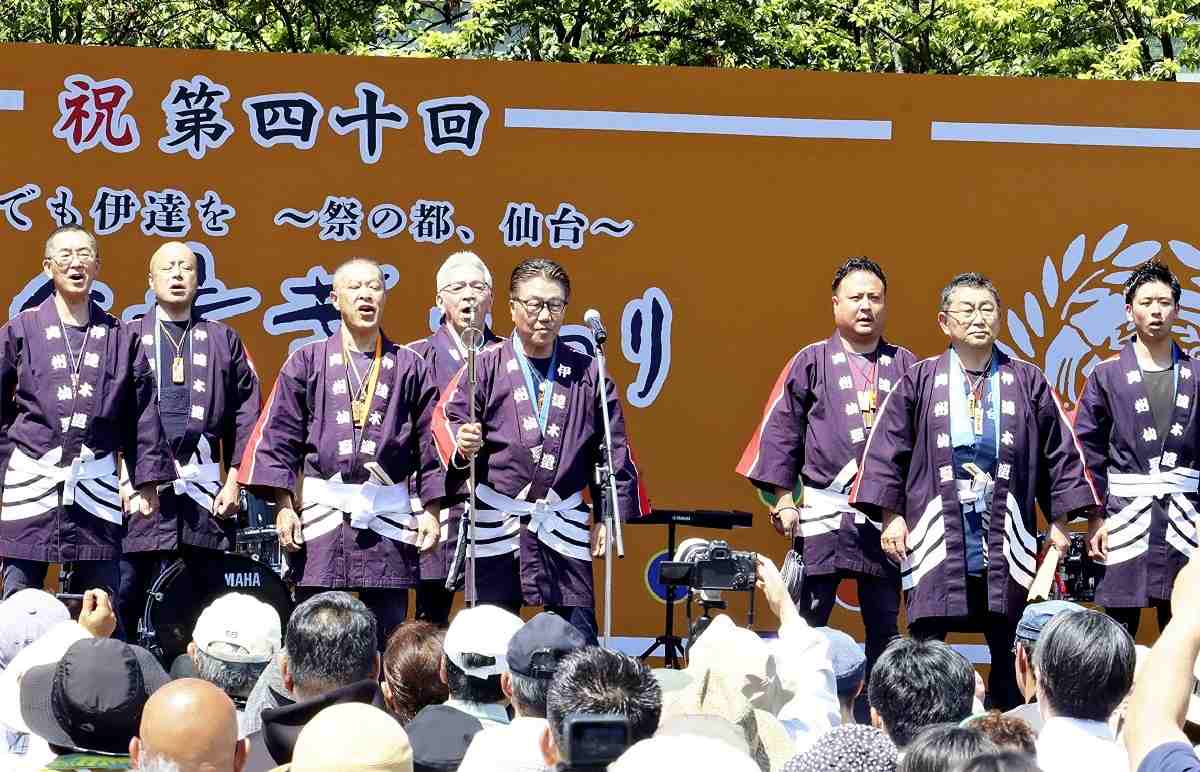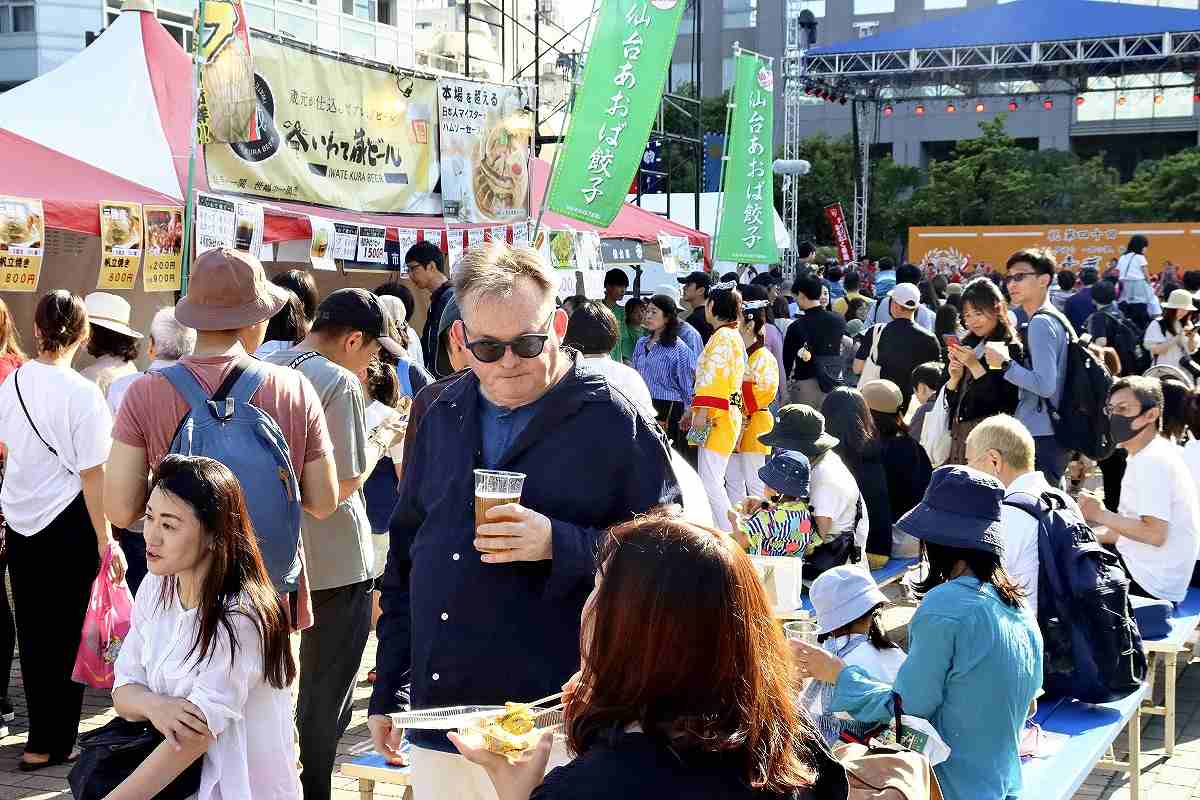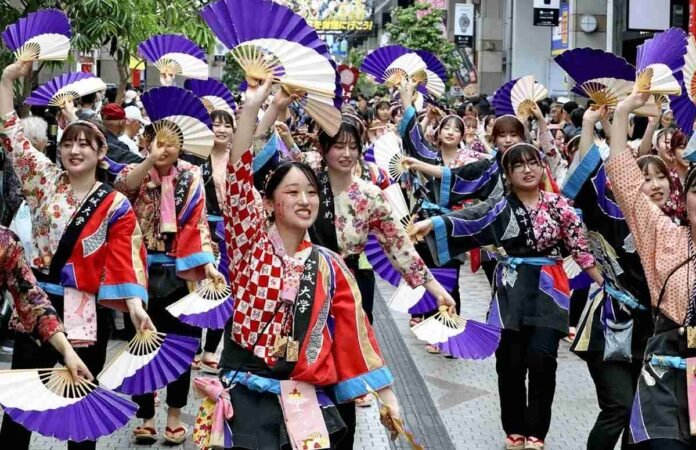Dancers in colorful happi jackets perform at a shopping street in Aoba Ward, Sendai, on May 18.
17:36 JST, June 12, 2024
SENDAI – A traditional song forgotten for 69 years was revived last month at an annual festival in Sendai.
The song “Sendai Matsuri Kiyari Ondo” was created by the Sendai clan in the Edo period (1603-1867) and was performed for the first time since 1955. The performance took place at the two-day Sendai Aoba Festival, which marks the arrival of summer.
At around 10 a.m. on May 18, just before the festival’s opening ceremony, about 30 men wearing purple and dark blue happi jackets appeared on a stage in Kotodai Park in the city’s Aoba district. In the last part of the song, a singer called the “kiyari-shi” brandished a Buddhist monk’s shakujo stick and gave a moving rendition of lyrics reminiscent of the city of Sendai. The other men followed with a guttural chorus of “Iyasore wa yoho-hoi.”
The song was performed by the Date Kiyari-kai group, which consists of members of an association that organizes the festival. They met once a week in their spare time to prepare for the performance, transcribe the song and practice unison.

Members of the Date Kiyari-kai group perform the song “Sendai Matsuri Kiyari Ondo,” the first performance in 69 years, in Aoba Ward, Sendai, on May 18.
The piece is one of the Kiyari work songs said to have originated from the screams of workers as they transported timber from the mountains. According to the organizing group, the song was performed in the Edo period at the Sendai Festival, the forerunner of the Aoba Festival, and sung at annual festivals of the district’s Aoba Shrine in the Meiji era (1868-1912) .
However, after World War II, it became more difficult to hold the festival due to the increase in traffic, and with the spread of Western culture, fewer people sang the song. For these reasons, performances of the song gradually died out, the association said.
About two years ago, the association learned from a book on the history of Sendai that a recording of the song existed. An attempt was made to revive the piece by talking to people familiar with it and researching relevant documents.
After the song’s first public performance in 69 years, Kiyohide Sugawara, 67, the vice president of the Date Kiyari-kai group, scored the performance a somewhat strict 50 or 60 out of 100.
Still, he said, “We believe we support the culture of Sendai. We are proud to have revived the song.” And he looked pleased, nodding his head broadly.

Residents enjoy the Sendai Aoba Festival on May 18 in Aoba Ward, Sendai.



